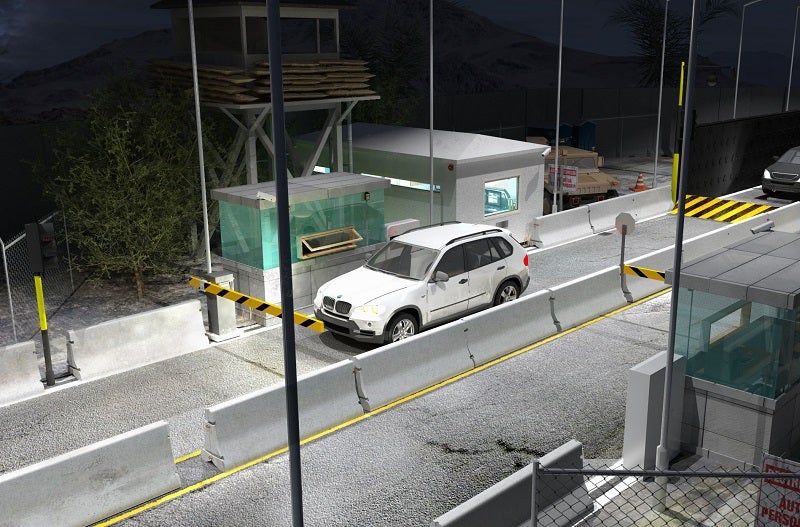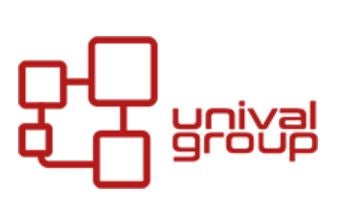
Head of International Sales at unival group (Unival), Leonid Zelenkevich, explains why screening and checkpoints may become even more important in the post-Covid world, and how ensuring that projects re-open safely will ultimately save customers money.
Q: How important are screening and checkpoints going to be post Covid-19?
Leonid Zelenkevich: They’re certainly going to be very important. Screening and checkpoints have always been vital for managing security around the world, but Covid-19 has provided real lessons for government agencies, private organisations and individuals, with governmental organisations especially taking more control to prevent the virus spreading.
Looking at the world beyond Covid-19, in security terms it depends how the disease develops. If governments need to manage the disease for a long time, then checkpoints could certainly become normal in everyday life. Individuals may have to engage with checkpoints to do almost everything, like entering a shop or going to a restaurant. And once a vaccine is discovered we’re still likely to see more checkpoints, albeit for a limited period.
With growing threats from international terrorism, an increase in contraband and trafficking around the world, demand for checkpoints will continue to grow regardless. Covid-19 has increased the necessity for checkpoints in many more sectors. After the pandemic, we’ll probably see that demand continue in line with new requirements of governmental organisations, and as preventive measures to help maintain health and safety standards.
Q: What are the particular challenges created by the pandemic, and how does Unival address them?
Before, checkpoints were mostly related to security applications, but now they increasingly either need to be fully related to health and safety – with things like fever screening built in – or a hybrid of both. There wasn’t previously such a vast demand for health and safety-related checkpoints, so companies like Unival had to come up with creative ways to address that need, and do so quickly to keep pace with the changing requirements of checkpoint operators.
Manufacturers have responded very well. We’ve focussed on integrating a number of new technologies with existing security measures, as well as providing standalone hygiene and fever screening checkpoints to help organisations monitor people’s health, and prevent the risk of infection spreading inside premises.

US Tariffs are shifting - will you react or anticipate?
Don’t let policy changes catch you off guard. Stay proactive with real-time data and expert analysis.
By GlobalDataThere’s now also a much greater emphasis on operational procedures among commercial organisations. For example, because of Covid-19, now even a small business such as a restaurant has to have a clear process related to checkpoints for visiting customers.
This is one of the factors changing the security sector and checkpoint screening applications. It’s been a challenge to adapt to due to the speed of change, however the industry has managed to meet the demand and ensure that effective solutions are available.
Q: What do modern checkpoints look like, and how does Unival make them more welcoming than in the past?
Covid-19 has brought a bigger emphasis on efficiency, because organisations need to screen a lot more people in more locations. The solutions we provide must therefore be extremely efficient and effective at their core job. There’s an emphasis on risk reduction, relating to the fact that some previous technologies may no longer be applicable, and may need to be complemented with other solutions to be relevant in our newer checkpoints.
Unival also puts great emphasis on the issues of privacy and ethics. Prior to Covid-19, physical touch points between security personnel and individuals being searched at our checkpoints were limited wherever possible. The pandemic made it clear that this was a significant variable which needed to be carefully considered, and will play a bigger part in checkpoint inspection in the future. We were well positioned for this because it had been our focus before coronavirus.
Q: What new technology do you currently deploy in your screening and checkpoint solutions?
At the moment we’re focussed on fever screening and other technologies related to reducing the risk of virus transmission. We already offer solutions to measure the temperature of individuals coming through a facility, and we’ve seen a big rise in demand for those, from airports and governmental organisations to office buildings and warehouses.
As well as that we have hygiene stations, and solutions that combine fever screening with sanitiser dispensers. Essentially, any organisation where a number of people work collectively wants to make sure the risk of transmitting Covid-19 is minimised. Unival can meet this demand either by integrating customers’ existing systems with the Covid-19 related solutions or by supplying them with new, tailor-made systems.
Our advantage is that we’re always focused on the modular design of an integrated solution. We can make our checkpoints very flexible to ensure they match the end user’s specification, and we make sure the user’s operational and throughput requirements are considered within the design.
Q: What other challenges do your screening and checkpoint solutions address (other than Covid-19?)
Because our checkpoints are modular, they can be targeted at specific risks of particular end users. In the main markets we operate in, for example, the risks are related to terrorist attacks and smuggling. Depending on the particular application – whether it’s for screening individuals, groups of people or vehicles – we would design a checkpoint to detect either weapons; weapons and explosives; or weapons, explosives and drugs depending on the particular governmental agency or customer we’re working with, and the types of related risks.
Also, recently in Europe a growing threat to companies has been the theft of high-value consumer items. The rise of online shopping companies like Amazon has resulted in many more remote distribution centres, where theft can be prevalent with involvement from organised crime. We can design solutions that help prevent theft for these businesses.
Q: How can effective screening and checkpoints save customers money?
To make screening and checkpoints cost effective, the solution provider and the operational staff of the end user need to work closely together to understand the issues and then ensure the solution addresses those issues. If that can be achieved, then customers will save money by making sure that the system covers their specific needs.
That is the core of our approach. We suggest applicable technologies and the level of security and screening that we believe is exactly right for that particular customer or operational scenario.
Additionally, we measure checkpoint ‘speed’, which is the number of people or objects a checkpoint can scan per hour, or per minute. With airport screening or commercial security operators it is a very important variable to control. The higher the throughput of your checkpoint, the more time your customers will have to spend in shops, cafes and restaurants, with the knock-on effect being increased revenues. Furthermore, people undergoing inspection are more likely to feel positively about their checkpoint experience if it’s quick, efficient and has minimal effect on their privacy.
We always analyse those factors outside the core security aspects of the checkpoint to ensure that our solutions take efficiency as a core requirement, making them more appealing for both our customers and the subjects of inspection procedures.




